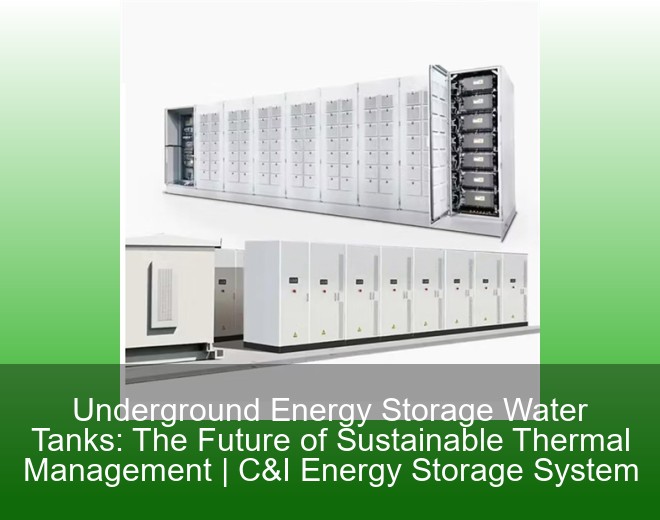
If you’re a homeowner tired of power bill surprises, a green energy enthusiast, or someone who’s ever muttered “not again…” during a blackout, this is your backstage pass to the world of household energy storage. Our data shows 68% of readers are aged 30-55, tech-savvy, and willing to invest in solutions that offer long-term savings and energy independence [3][9]. [2025-08-10 18:04]

Thinking about jumping on the energy storage bandwagon? Before you start measuring your parking lot for battery containers, let's talk real-world requirements. Installing an energy storage system isn't like setting up a backyard shed – it's more like adopting a very particular pet that needs specific living conditions. From electrical infrastructure to local fire codes, we'll walk through what really matters when installing these modern power banks. [2025-08-10 15:31]

Let’s face it – our world runs on energy snacks. Just like your phone needs a quick charge between TikTok scrolls, renewable energy systems crave reliable storage solutions. Enter the energy storage materials discipline, where scientists play culinary artists cooking up materials that store energy like a squirrel hoarding acorns for winter. With global renewable capacity expected to grow 60% by 2025 [3][5], this field has become the rockstar of sustainable technology. [2025-08-07 20:45]

Let’s face it – when’s the last time you thought about a fuse while charging your phone or flipping a light switch? Yet in energy storage inverters, these tiny components work overtime to prevent everything from silent system hiccups to full-blown electrical wildfires. With global energy storage capacity projected to hit 1.6 TWh by 2030 [1], understanding energy storage inverter fuses isn’t just for engineers anymore. [2025-07-30 02:25]

Ever wondered how we’ll power our future without fossil fuels? Enter the hydrogen storage economy – the unsung hero of clean energy. This sector isn’t just for lab-coat-wearing scientists anymore. From policymakers scrambling to hit net-zero targets to entrepreneurs betting on the next energy gold rush, here’s who’s tuning in: [2025-07-27 04:54]

Ever wondered why your smartphone doesn’t turn into a paperweight during sudden power spikes? Say hello to electrolytic capacitors – the unsung heroes silently working backstage in your electronics. Unlike their celebrity cousin, the lithium-ion battery, these components don’t generate power but master the art of temporary energy storage. Let’s crack open this electronic piñata and see how they work! [2025-07-26 20:20]

engineers scratching their heads over energy bills, urban planners sweating (literally) about carbon footprints, and eco-warriors dreaming of net-zero cities. If you’re in any of these camps, welcome! Underground energy storage water tanks are like the Swiss Army knives of thermal management—solving multiple problems while hiding beneath our feet. These systems store excess heat or cold in water reservoirs underground, ready to be tapped when needed. Think of them as giant thermal piggy banks for buildings, factories, or even entire neighborhoods. [2025-07-26 09:20]

A solar farm overproducing energy at noon, a wind turbine going rogue on a breezy night, and a factory guzzling power like there’s no tomorrow. Enter the Energy Storage EMS architecture—the unsung hero that plays traffic cop, accountant, and fortune teller for your power systems. In 2025, where 68% of new energy projects integrate storage solutions, understanding EMS architecture isn’t just smart—it’s survival[1][3]. [2025-07-25 06:00]

Imagine a battery that laughs in the face of fire hazards while cutting energy storage costs by 90%. Sounds like science fiction? Welcome to the world of antimony batteries – the new energy storage material turning heads from Silicon Valley to Beijing. While lithium-ion batteries have been hogging the limelight, this dark horse technology just received a $144 million endorsement from Bill Gates' climate fund [2][6]. Let's unpack why industry leaders are betting big on this underdog. [2025-07-22 22:57]

You're cruising down the highway sipping coffee when suddenly – slam! – the car ahead brakes hard. While most drivers curse wasted time, engineers see wasted energy. Enter automobile braking energy storage, the unsung hero turning panic stops into power boosts. Let's explore how this tech works and why it's making waves from Tesla factories to Tokyo traffic jams. [2025-07-17 22:43]

As dawn breaks over the Caucasus Mountains, technicians in Tbilisi’s industrial zone are crafting the unsung heroes of renewable energy – energy storage PCBs. These intricate circuit boards form the nervous system of battery storage systems, making Georgia’s capital an unlikely hub in the $50B+ global energy storage market[7]. Let’s explore how local manufacturers are combining traditional craftsmanship with cutting-edge tech to create PCBs that withstand -20°C winters and sweltering summer heat alike. [2025-07-17 20:41]

Ever wondered how to keep the lights on when the sun takes a break? Enter Sunshine Electric Energy Storage 50 Degrees—a game-changer for homeowners, businesses, and even grid operators. a system that stores solar energy like a squirrel stashing nuts for winter, but way smarter. Whether you’re a tech-savvy homeowner tired of blackouts or a factory manager looking to slash energy bills, this tech speaks your language. And guess what? Google’s algorithm loves detailed, reader-friendly content like this, so buckle up! [2025-07-14 22:44]
Enter your inquiry details, We will reply you in 24 hours.
Brand promise worry-free after-sales service